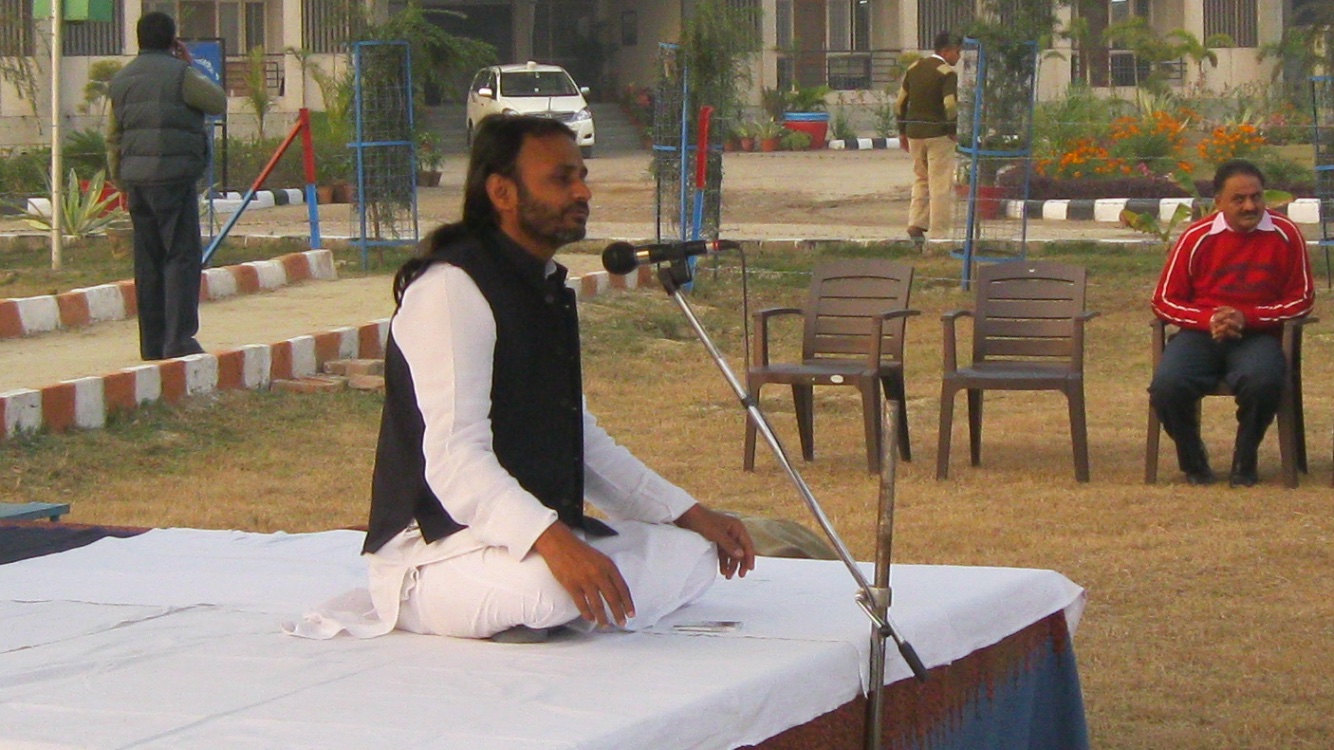
Meditation a Deep Healing
1 year ago By Yogi AnoopExperience of Meditation and Sleep: Deep Healing
As the practice of meditation deepens, its effects become more and more evident. Many practitioners experience that they start feeling sleepy while meditating. This is a natural process in which the speed of electrical waves released by neurons starts to slow down. It begins to resemble the speed of alpha (frequency: 8-13 Hz) and theta (frequency: 4-8 Hz) waves. As this state develops, the brain becomes very calm, and the practitioner begins to feel a drowsiness akin to sleep.
The innermost self desires even deeper peace, to the extent that it seeks more profound peace than what can be attained through the alpha and theta waves. Therefore, the mind wishes to prolong the period of emptiness (void). Extending the period of emptiness means the slowing down of the electrical wave frequencies. This slow speed indicates that one is entering into deep sleep, i.e., moving into delta waves (frequency: 0.5-4 Hz).
Note that in this state, the electrical wave frequency in the brain is so slow that there is complete relaxation in the microcells of the brain. This sensation of relaxation does not last for long, resulting in the mind transforming into peace. During this time, two possibilities arise: the first is entering into deep sleep, where profound healing begins. The second is entering the ultimate state of meditation, i.e., remaining in a state of wakefulness while experiencing the same sensations without falling asleep. This is the state of samadhi.
Here, it is important to analyze that when the delta waves (0.5-4 Hz) occur, one loses the sense of both self and body. If during samadhi, a practitioner remains in this state while staying alert and conscious, it is a significant achievement. This is a form of healing that not only nurtures the body but also becomes a powerful medium for self-realization. At such slow speeds of electrical waves, the feeling of one’s own stability becomes very apparent.
Just like when external conditions are filled with storms, recognizing one’s own stability is not easy. There is a lot of chaos to face; however, when the external storms subside, experiencing one’s own stability becomes much easier.
Difference Between Sleep and Meditation
There is an important difference between meditation and sleep—awareness remains in meditation, whereas in sleep, the sense of existence (whether one exists or not) fades away for a brief moment. When meditation occurs, the brain begins to enter a state of complete rest as the microcells become relaxed. This experience of rest is meditation, and the extension of this experience into a prolonged state is samadhi. This state is one of alertness. This is what is referred to as the state of meditation and the state after meditation, which is samadhi.
In the deep state of meditation, thoughts gradually quiet down, and the person begins to experience immense contentment. This state is so blissful that the practitioner naturally becomes absorbed in it. But if the practitioner becomes entirely unconscious, it turns into sleep. Therefore, the purpose of meditation is not just to achieve rest, but to maintain complete awareness during that rest.
Meditation: A Journey Beyond Mental Rest
The practice of meditation is not limited to mental relaxation; it helps an individual realize their true identity. It provides the awareness of one’s own stability. However, I view it from a therapeutic perspective for general people. It not only liberates from the overwhelming clutter of thoughts but also helps in freeing one from many mental ailments. Additionally, it is a significant source of sleep.
Even science has acknowledged that a decrease in the speed of electrical waves in the brain leads to improved health of both the body and mind. If viewed from this perspective, it is the practice of meditation that makes all these experiences possible.
In modern life, sleep has become a major issue. For this, meditation can be seen as a significant alternative. However, it is important to note that its true purpose is not just to gain sleep. This may be a limited perspective, but its real purpose is much greater: it is self-realization.
To understand meditation only as a relaxation technique would be to underestimate its depth. It is true that meditation provides mental rest and relief from stress, but its true aim is self-awakening. When meditation is practiced correctly, a person reaches the depths within themselves and is able to experience their true self. The control over thoughts happens naturally in that process.
It is practically proven that there is a deep connection between the experiences of meditation and sleep. Experiencing sleep during meditation is natural because meditation leads the body and mind into a state of deep rest. However, the true goal of meditation is to go beyond relaxation and reach the state of full self-awareness, which is referred to as self-realization.
Recent Blog
Copyright - by Yogi Anoop Academy
